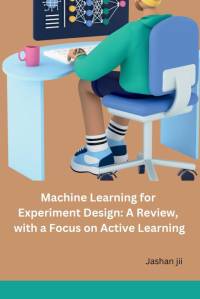Om Machine Learning for Experiment Design
Machine Learning for Experiment Design: A Review, with a Focus on Active Learning"
Experimentation lies at the heart of scientific progress and technological innovation. In recent years, machine learning has emerged as a powerful tool for enhancing the process of experiment design. This comprehensive review delves into the fascinating intersection of machine learning and experiment design, with a particular emphasis on the role of active learning.
Experiment design involves making informed decisions about the parameters, variables, and conditions under which experiments are conducted to achieve specific goals. Traditional approaches rely on expert knowledge and trial-and-error methods, often resulting in time-consuming and resource-intensive processes. This is where machine learning steps in, revolutionizing the way experiments are planned and executed.
The review begins by providing a solid foundation in the fundamentals of experiment design and its importance across various domains, including chemistry, biology, engineering, and more. It explores how machine learning algorithms, particularly active learning, can assist in the selection of informative data points, reducing the need for large-scale data collection and experimentation. By iteratively choosing the most valuable data points, active learning accelerates the convergence of experimental outcomes, saving time and resources.
The discussion also covers the wide array of machine learning techniques employed in experiment design, from Bayesian optimization and reinforcement learning to deep learning approaches. Real-world case studies from diverse fields highlight the effectiveness of these methods in optimizing experimental processes, optimizing resource allocation, and achieving superior results.
Furthermore, the review addresses the ethical considerations surrounding the use of machine learning in experiment design, emphasizing the importance of transparency, bias mitigation, and responsible data management.
"Machine Learning for Experiment Design: A Review, with a Focus on Active Learning" serves as an invaluable resource for researchers, scientists, and engineers seeking to harness the potential of machine learning to enhance the efficiency, accuracy, and innovation of their experiments. It offers insights into the state of the art in this dynamic field and charts a course for the future of experiment design, where intelligent algorithms work hand in hand with human expertise to unlock new discoveries and advancements.
Visa mer

